Welcome to the St. Emlyn’s podcast blog! I’m Ian Beardsell, and alongside Simon Cully, we're here to bring you our monthly update. This post will delve into February's content, upcoming events, and the latest discussions in emergency medicine.
Winter Challenges and Patient UpdatesWinter has been relentless this year, and we're still feeling its impact. The influx of patients hasn't slowed down, and our departments are buzzing with activity. Up in Manchester, we continue to see a high volume of patients, while down south, the weather has been kinder, though no less busy. As a Yorkshireman, I can empathize with the challenges faced in the North. Hang in there, and let's get through these cold evenings together!
Upcoming Events: St. Emlyn’s Live and Teaching CourseBefore diving into February's posts, let's talk about the exciting events we have lined up. This October, we're hosting the St. Emlyn’s Live conference and the Teaching Course in Manchester.
St. Emlyn’s Live ConferenceThe St. Emlyn’s Live conference is a one-day event focused on our philosophy's four pillars: clinical work, evidence-based medicine, wellbeing, and the philosophy of emergency medicine. With international speakers, this event promises to be an enriching experience for all attendees. Spaces are limited, so make sure to book your spot early via our website.
Teaching Course in ManchesterFollowing the conference, we have a three-day Teaching Course designed to develop you as an expert teacher in emergency medicine. This comprehensive course covers all aspects of teaching and is an excellent opportunity to enhance your skills. All bookings can be made through the St. Emlyn’s website.
Insights from February’s Blog PostsFebruary was a month rich with valuable insights and studies. Let's delve into some of the highlights:
Intranasal Ketamine and Fentanyl for ChildrenOne of the standout studies we reviewed in February focused on the use of intranasal ketamine and fentanyl for managing pain in children. Pain management in pediatric patients is always challenging, especially when IV access is difficult. Traditionally, we've used intranasal diamorphine, but there's been a shift towards using intranasal ketamine and fentanyl, particularly in the US.
Study OverviewThis randomized controlled trial compared 1 mg/kg of intranasal ketamine against 1.5 mcg/kg of intranasal fentanyl in children aged 4 to 17 with suspected isolated extremity fractures. The primary outcome was pain reduction, and both drugs performed similarly in this regard.
Side Effect ProfilesThe key takeaway was the difference in side effect profiles. Ketamine is known to cause dysphoria, vomiting, and dizziness, while fentanyl has fewer unpleasant side effects. Therefore, fentanyl emerged as the preferred choice not because of superior pain relief but due to its more favourable side effect profile.
Practical ImplicationsThe study underscores the importance of having a streamlined protocol for intranasal medications in emergency departments. While some departments might still use syringes, investing in mucosal atomizer devices can simplify administration and improve patient care.
Engaging Medical Students in Emergency MedicineWe had a guest blog from Claire Bromley, a medical student working with us in Manchester. Claire shared her experiences and insights into why she chose emergency medicine as a career, despite the occasional negativity she faced from other specialties.
Building a Career in Emergency MedicineClaire's blog is an inspiring read for medical students considering a career in emergency medicine. She highlights the importance of engaging students in the department and ensuring they see the undifferentiated, unwell patients that characterize our specialty. Her experiences as a SMACC volunteer and her early involvement in FOAMed (Free Open Access Medical Education) are testaments to the value of early engagement and online education.
The Role of EducatorsOne of the significant challenges we face is balancing the educational needs of students with the operational demands of the department. However, investing time in student education is crucial. These students are our future colleagues, and their early exposure to emergency medicine can shape their career choices and prepare them for the challenges ahead.
Aromatherapy with Isopropyl Alcohol for NauseaA fascinating study we reviewed involved the use of isopropyl alcohol for nausea relief. The concept of sniffing alcohol swabs to alleviate nausea isn't new, but this study provided robust evidence supporting its effectiveness.
Study Design and ResultsThe randomized controlled trial compared the effects of isopropyl alcohol sniffing to oral ondansetron in adult patients presenting with nausea in the emergency department. The results were surprising: patients who sniffed isopropyl alcohol swabs reported greater relief from nausea than those who took ondansetron.
Implementation ChallengesWhile the study's findings are promising, implementing this practice consistently in emergency departments can be challenging. Ensuring that alcohol swabs are readily available and that staff are trained to use them effectively is key. Additionally, clarifying whether a Patient Group Directive (PGD) is required for this intervention could streamline its adoption.
Reflections on Historical PracticesOne of the lighter yet insightful pieces this month was a video from the 1970s showcasing a casualty department in Liverpool. Watching historical medical practices can be both amusing and educational, offering a perspective on how far we've come and what future generations might think of our current practices.
Educational ValueWhile humorous at times, the video also highlights the core principles of emergency medicine that remain unchanged. It reminds us of the importance of continuous learning and adaptation in our field.
Looking Ahead: SMACC 2019 and BeyondAs we look forward to the year ahead, we’re excited about the upcoming SMACC conference in Australia in 2019. Planning for study leave and participation in such international conferences is essential for continuous professional development. These events provide unparalleled opportunities for learning, networking, and sharing best practices.
ConclusionFebruary has been a month filled with valuable insights, studies, and preparations for future events. The emphasis on pain management in children, engaging medical students, and innovative approaches to nausea relief reflects our ongoing commitment to improving patient care and education in emergency medicine.
More Episodes
Ep 253 - Highlights from the London Trauma Conference 2024
 2024-12-11
2024-12-11
 659
659
Ep 252 - ECMO in Trauma with Chris Bishop at Tactical Trauma 24
 2024-12-04
2024-12-04
 1.1k
1.1k
Ep 251 - Bad Behaviours in Teams with Liz Crowe at Tactical Trauma 24
 2024-11-27
2024-11-27
 1.3k
1.3k
Ep 250 - Monthly Round Up September 2024 - Patient Experience in the ED, Dirty Adrenaline, and More!
 2024-11-20
2024-11-20
 1.3k
1.3k
Ep 249 - Care in the Hot Zone with Claire Park at Tactical Trauma 2024
 2024-11-14
2024-11-14
 1.4k
1.4k
Ep 248 - Prehospital eCPR with Alice Hutin at Tactical Trauma 2024
 2024-11-06
2024-11-06
 1.4k
1.4k
Ep 247 - August 2024 Round-Up - Goldilocks Moments, Nasal Analgesia, and Public Health in the ED
 2024-10-30
2024-10-30
 1.3k
1.3k
Ep 246 - Simulation for Elite Team Performance with Andrew Petrosoniak at Tactical Trauma 2024
 2024-10-23
2024-10-23
 1.5k
1.5k
Ep 245 - Leading through failure with Kevin Cyr at Tactical Trauma 2024
 2024-10-18
2024-10-18
 1.9k
1.9k
Ep 244 - July 2024 Monthly Update - Chest Pain, REBOA, Lidocaine patches and lots of paediatric emergency medicine
 2024-10-06
2024-10-06
 1.5k
1.5k
Ep 243 - The Subarachnoid Haemorrhage in Emergency Department (SHED) Study
 2024-09-26
2024-09-26
 1.8k
1.8k
Ep 242 - Prehospital Neuroprotection with Ed Langford at PREMIER 2024
 2024-08-21
2024-08-21
 1.6k
1.6k
Ep 241 - Paediatric Palliative Care with Tim Warlow at PREMIER 2024
 2024-08-14
2024-08-14
 1.2k
1.2k
Ep 240 - June 2024 Monthly Round Up - Nebulised Ketamine, Risky Intubations, Better Presentations, DSED, Preoxygenation and more
 2024-08-07
2024-08-07
 1.8k
1.8k
Ep 239 - Button Battery Ingestion with Francesca Steadman at PREMIER 2024
 2024-07-31
2024-07-31
 1.4k
1.4k
Ep 238 - Positive and Negative Predictive Values: Critical Appraisal Nugget
 2024-07-24
2024-07-24
 1.3k
1.3k
Ep 237 - Hybrid Closed Loop Insulin Pumps with Nicola Trevelyan at PREMIER 2024
 2024-07-17
2024-07-17
 1.3k
1.3k
Ep 236 - Occlusive Myocardial Infarction, ECGs and AI with Steve Smith
 2024-07-10
2024-07-10
 1.9k
1.9k
Ep 235 - Eating Disorders in the Emergency Department with Anna Kyle at PREMIER 2024
 2024-07-02
2024-07-02
 1.4k
1.4k
Ep 234 - May 2024 Monthly Round Up - RCEM conference highlights, being EPIC and more
 2024-06-27
2024-06-27
 1.4k
1.4k
Create your
podcast in
minutes
- Full-featured podcast site
- Unlimited storage and bandwidth
- Comprehensive podcast stats
- Distribute to Apple Podcasts, Spotify, and more
- Make money with your podcast
It is Free
You may also like
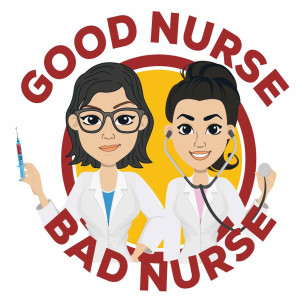
Good Nurse Bad Nurse


The Relaxback UK Show

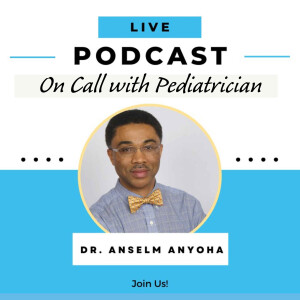
On Call With Dr. Anselm Anyoha

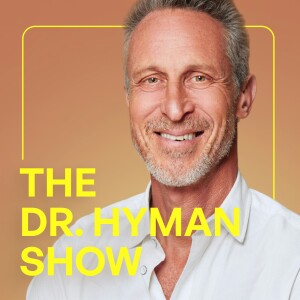
The Dr. Hyman Show

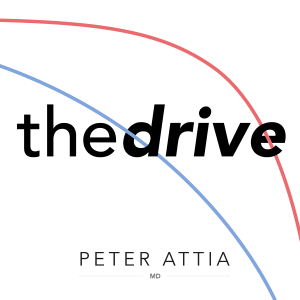
The Peter Attia Drive

- Privacy Policy
- Cookie Policy
- Terms of Use
- Consent Preferences
- Copyright © 2015-2024 Podbean.com

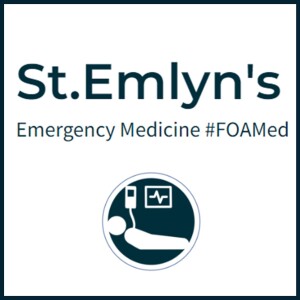


 iOS
iOS Android
Android